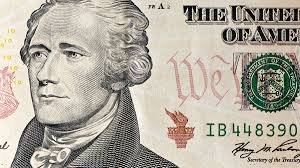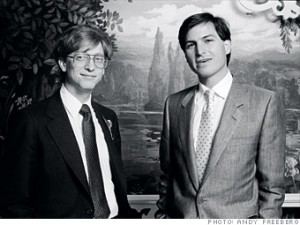 American politics has always followed the Golden Rule.
American politics has always followed the Golden Rule.
He who has the gold makes the rules.
We have always lived with Jeffersonian ideals in a Hamiltonian system. When enslaving people seemed to pay, slave states ran our politics. When railroads and utilities dominated, they ran it. When manufacturing dominated, auto executives took power. When resources dominated, we were run by oil men.
During my working life, technology has gradually come to power. I’ve written before how Barack Obama was given power by Google, a giant database that could be used to identify and activate every voter. Trump represented a revolt by the resource industries, their bankers, and their backers in the military-industrial complex. More important, he used tech against its own interests.
 Democracy’s survival was a close-run thing. This was only partly due to Trump and his authoritarian personality. It was also a product of the resource industries’ desperation to hold on to power, against a tide of accelerating change. They couldn’t do it. The tide rolled over them. Today just five companies – Apple, Microsoft, Google, Amazon, and Facebook – are worth over $7 trillion. Their allies and suppliers, their “retinue” I call it, are worth trillions more.
Democracy’s survival was a close-run thing. This was only partly due to Trump and his authoritarian personality. It was also a product of the resource industries’ desperation to hold on to power, against a tide of accelerating change. They couldn’t do it. The tide rolled over them. Today just five companies – Apple, Microsoft, Google, Amazon, and Facebook – are worth over $7 trillion. Their allies and suppliers, their “retinue” I call it, are worth trillions more.
What tech needs from government is different from what the resource industries needed. They needed military protection, they needed control over what they extracted. What tech needs is human capital, trained and empowered minds, because that’s what drives tech forward. Tech also needs demand. Tech doesn’t need money. Most tech companies borrow very little. Money rushes in, and growth becomes an asset.
Resources and money are nationalist. Tech is globalist. Tech doesn’t care where its talent comes from. Tech doesn’t belong to California, or even America. Tech can move.

Technology proved its worth in 2020, in ways that even surprised technologists. After selling the idea of working from home for decades (without engaging in it), tech was forced to support a mass market. After selling the idea of e-commerce for 20 years, suddenly it had to scale to fit the whole economy.
Tech succeeded. But in succeeding tech made millions of jobs obsolete. What are real estate agents and mortgage brokers going to do? What about merchants and merchandisers? Where have all the wholesalers gone? Where will drivers be in five years, or 10?

The only way to get people back to work is to find new things for them to do. Piling capital into assets doesn’t do that. People with cash will only invest in opportunity, in business models that can work. Without demand, business models don’t work.
Forget the arguments over “capitalism” and “socialism.” They have always been phony. Alexander Hamilton sponsored the first venture capitalists. It was government land that brought us the railroads. Regulated utilities built our cities, and government contracts our manufacturing base. Even the Internet was a Cold War activity, as was putting a man on the Moon.
By sponsoring research, by juicing demand, by creating it through spending, government supports every capitalist economy. There is no pure capitalism because capitalism requires the rule of law to protect it.

Tech has been chastened by the Trump years. We can no longer just say “don’t be evil” or expect the better angels of our nature to triumph without effort. Regulation is coming. Democrats will need to balance the financial needs of tech with the requirements of ordered liberty. There will be no break-up of “big tech.” There will be regulation, and regulatory capture.
Behind the tech giants, a new industry is rising to take its place. Biochemistry, and genetic engineering, require the hand of government even more than tech does. Without enforcement of ethical principles, the new industries may destroy us all, unleashing horrors beyond comprehension. Many horrors will be unleashed. But so, too, will miracles, and so will markets.
That’s the direction America has always taken. Forward. Liberty, capitalism, and democracy can still win. These three pillars of ordered liberty, taken together, are the secret sauce of economic growth.
Only when we turn permanently away from that will America fail.









